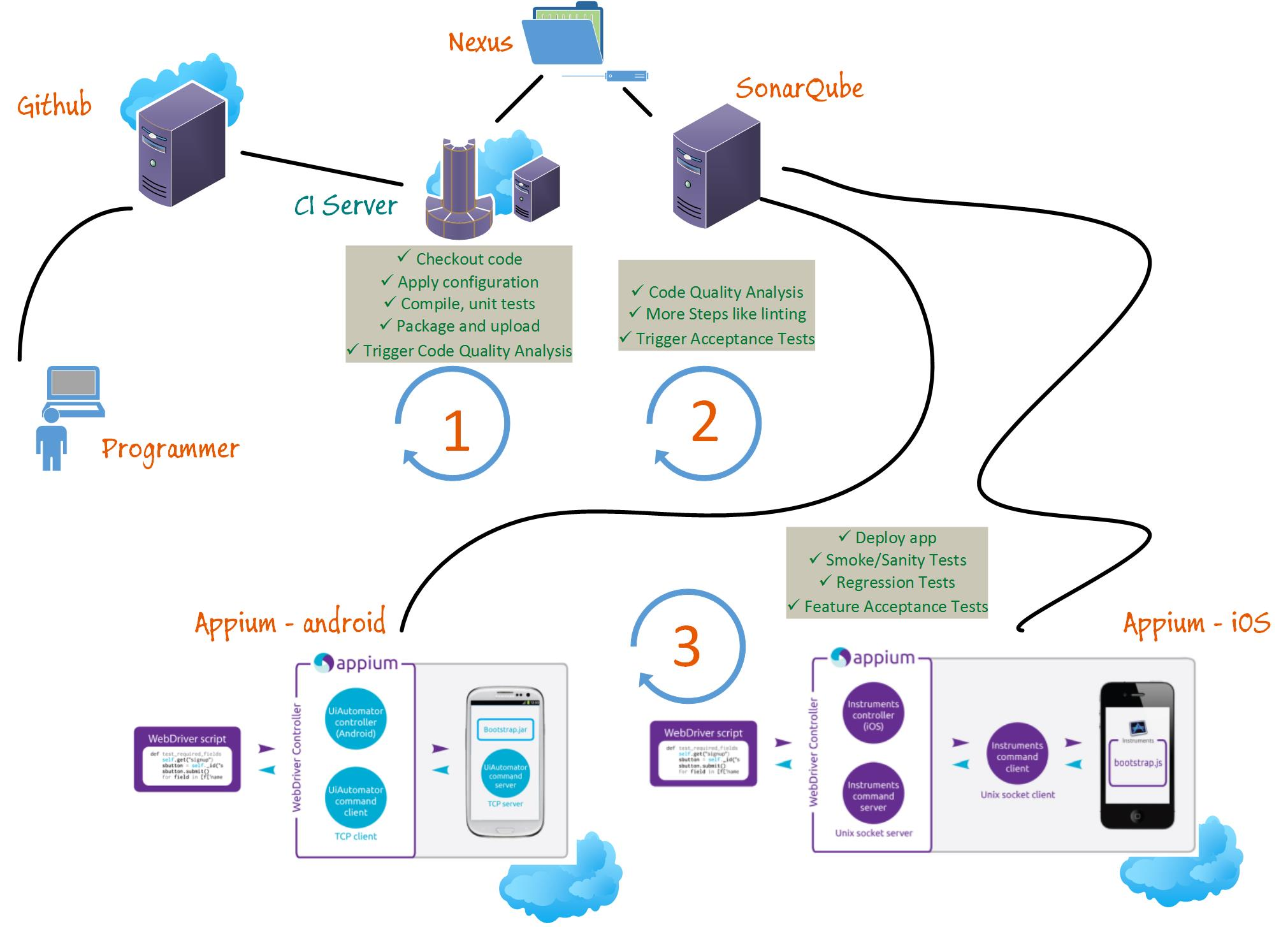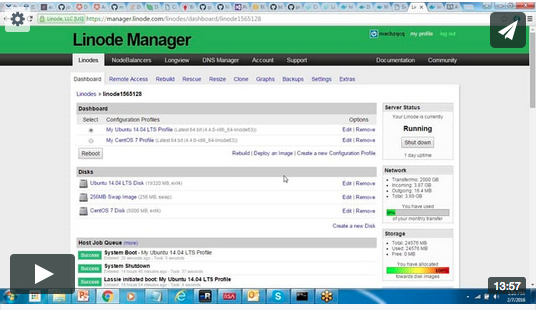Jenkins
There are many CI servers out there and frankly we can use whatever you are comfortable with. I pick Jenkins because the ramp up time for starting a server and the availability of large number of plugins makes it easier to experience CI in the fastest way.
Installation
You may go to the jenkins-ci.org website and follow the instructions and start the server. I have listed the quick steps here.
Large scale implementation of Jenkins requires a little more discipline, however we assume at this point that you have a Jenkins server up and running in your environment. If you do not, then follow the next section to stand up one quickly with docker.
Docker
With lightweight containers, docker helps you create sandbox environments, that replicate production environment. Assuming that you have a basic understanding of docker, spinning up a sandbox for Jenkins is as below.

Video
Follow the video below if you need help starting a Jenkins container.
Overall Architecture
We will be building the CI feedback loop aligning with the architecture below.

Build Monitor View
From a Jenkins build monitor plugin, since Jenkins orchestrates the pipeline, the build monitor view is as follows:

